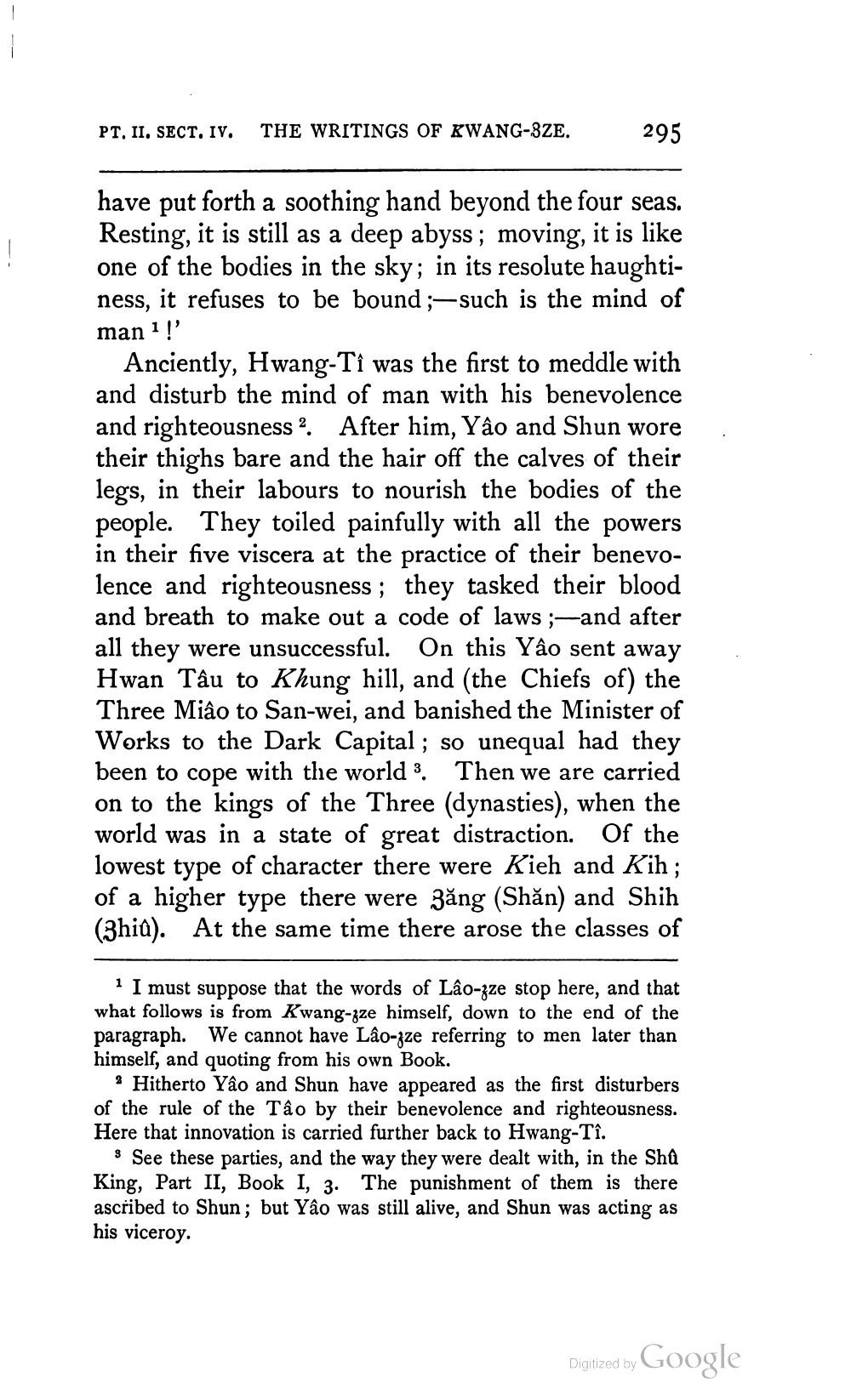________________
PT. II. SECT. IV.
THE WRITINGS OF KWANG-BZE.
295
have put forth a soothing hand beyond the four seas. Resting, it is still as a deep abyss; moving, it is like one of the bodies in the sky; in its resolute haughtiness, it refuses to be bound ;-such is the mind of man 1!'
Anciently, Hwang-Tî was the first to meddle with and disturb the mind of man with his benevolence and righteousness 2. After him, Yâo and Shun wore their thighs bare and the hair off the calves of their legs, in their labours to nourish the bodies of the people. They toiled painfully with all the powers in their five viscera at the practice of their benevolence and righteousness; they tasked their blood and breath to make out a code of laws ;—and after all they were unsuccessful. On this Yâo sent away Hwan Tâu to Khung hill, and (the Chiefs of) the Three Miâo to San-wei, and banished the Minister of Works to the Dark Capital ; so unequal had they been to cope with the world 3. Then we are carried on to the kings of the Three (dynasties), when the world was in a state of great distraction. Of the lowest type of character there were Kieh and Kih; of a higher type there were Zăng (Shăn) and Shih (Zhiù). At the same time there arose the classes of
1 I must suppose that the words of Lâo-zze stop here, and that what follows is from Kwang-tze himself, down to the end of the paragraph. We cannot have Lâo-zze referring to men later than himself, and quoting from his own Book.
3 Hitherto Yâo and Shun have appeared as the first disturbers of the rule of the Tâo by their benevolence and righteousness. Here that innovation is carried further back to Hwang-Tî.
See these parties, and the way they were dealt with, in the Shů King, Part II, Book I, 3. The punishment of them is there ascribed to Shun; but Yâo was still alive, and Shun was acting as his viceroy.
Digitized by Google




